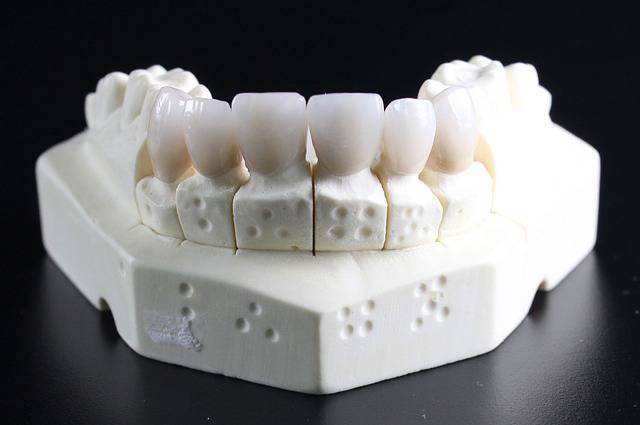Dental Care
Acidic Drinks: Why They Are So Bad to Drink

Acidic drinks, encompassing a wide range of beverages including sodas, fruit juices, energy drinks, and certain types of alcohol, have become ubiquitous in modern diets. These drinks are often marketed for their refreshing qualities, taste, and sometimes even health benefits. However, the high acidity levels in these beverages pose numerous health risks that are often overlooked. This comprehensive examination delves into the adverse effects of acidic drinks on various aspects of health, including dental, gastrointestinal, metabolic, and overall systemic impacts. By understanding these risks, consumers can make more informed choices about their beverage consumption.
The Chemistry of Acidity in Beverages
Acidity in drinks is measured by the pH scale, which ranges from 0 to 14, with 7 being neutral. Substances with a pH lower than 7 are considered acidic. Common acidic drinks like sodas and citrus juices typically have a pH between 2.5 and 4. The primary acids found in these beverages include citric acid, phosphoric acid, and carbonic acid, each contributing to the overall acidity and potential harm to the body.Citric Acid
Citric acid is naturally present in citrus fruits and is commonly added to beverages for its tangy flavor and preservative qualities. While it occurs naturally in fruits like oranges, lemons, and limes, its concentration in processed drinks is often much higher.Phosphoric Acid
Phosphoric acid is a common additive in cola beverages. It gives these drinks their sharp flavor and acts as a preservative. However, its high acidity and phosphorus content can lead to several health issues, particularly concerning bone health and kidney function.Carbonic Acid
Carbonic acid forms when carbon dioxide is dissolved in water, giving carbonated beverages their fizz. While it is less harmful than phosphoric and citric acids, its contribution to the overall acidity of a drink should not be underestimated.Dental Health: Erosion and Decay
One of the most immediate and noticeable effects of acidic drinks is on dental health. The enamel, which is the hard outer layer of teeth, is highly susceptible to erosion by acidic substances. Enamel erosion leads to increased sensitivity, cavities, and can significantly impact the aesthetic appearance of teeth.Enamel Erosion
Enamel does not regenerate once it is worn away. Acidic drinks lower the pH in the mouth, leading to the demineralization of the enamel. Frequent consumption of these beverages can accelerate this process, causing significant enamel loss over time.Dental Cavities
The erosion of enamel exposes the softer dentin layer underneath, making teeth more vulnerable to cavities. Additionally, many acidic drinks contain high levels of sugar, which further exacerbate the risk of tooth decay by providing a food source for harmful bacteria.Sensitivity and Pain
As enamel erodes and dentin becomes exposed, teeth become more sensitive to temperature changes and certain foods. This sensitivity can cause significant discomfort and impact a person's quality of life, making it painful to eat or drink hot, cold, or sweet items.Gastrointestinal Disturbances
Acidic beverages can wreak havoc on the gastrointestinal (GI) tract, leading to various digestive issues. These drinks can irritate the lining of the stomach and esophagus, leading to conditions such as acid reflux, gastritis, and peptic ulcers.Acid Reflux and GERD
Acid reflux occurs when stomach acid backs up into the esophagus, causing a burning sensation known as heartburn. Regular consumption of acidic drinks can weaken the lower esophageal sphincter, exacerbating this condition and potentially leading to gastroesophageal reflux disease (GERD).Gastritis
Gastritis is the inflammation of the stomach lining, which can be caused by the constant irritation from acidic beverages. Symptoms include stomach pain, nausea, vomiting, and a feeling of fullness. Chronic gastritis can increase the risk of developing ulcers and stomach cancer.Peptic Ulcers
Acidic drinks can contribute to the formation of peptic ulcers, which are sores on the lining of the stomach, small intestine, or esophagus. These ulcers can cause severe pain, bleeding, and other serious complications if left untreated.Metabolic Impacts
The regular consumption of acidic drinks has been linked to various metabolic disturbances, including an increased risk of obesity, diabetes, and metabolic syndrome. These conditions are major contributors to the global burden of chronic diseases.Obesity
Many acidic beverages are high in calories and sugar. Regular consumption can contribute to excessive calorie intake, weight gain, and eventually obesity. Obesity itself is a risk factor for numerous health conditions, including cardiovascular disease and type 2 diabetes.Diabetes
The high sugar content in many acidic drinks can lead to insulin resistance, a precursor to type 2 diabetes. Studies have shown that individuals who consume sugary drinks regularly have a significantly higher risk of developing diabetes compared to those who do not.Metabolic Syndrome
Metabolic syndrome is a cluster of conditions that occur together, increasing the risk of heart disease, stroke, and type 2 diabetes. These conditions include increased blood pressure, high blood sugar levels, excess body fat around the waist, and abnormal cholesterol levels. Acidic drinks contribute to these risk factors, particularly through their high sugar and calorie content.Bone Health
Acidic drinks, particularly those containing phosphoric acid, can negatively impact bone health. The excessive intake of phosphorus can disrupt the balance of calcium in the body, leading to weakened bones and an increased risk of fractures.Calcium Loss
Phosphoric acid in cola drinks has been shown to interfere with calcium absorption, leading to lower bone density. Calcium is essential for maintaining strong bones, and its deficiency can lead to conditions such as osteoporosis and osteopenia.Osteoporosis
Osteoporosis is a condition characterized by weak and brittle bones. It is particularly prevalent in postmenopausal women but can affect anyone with prolonged calcium deficiency. Acidic drinks, by disrupting calcium balance, contribute to the development of this debilitating condition.Kidney Health
The kidneys play a crucial role in filtering waste products from the blood and maintaining electrolyte balance. The high levels of certain acids and sugars in acidic drinks can put a strain on the kidneys and lead to various renal issues.Kidney Stones
Acidic drinks, particularly those high in fructose and phosphoric acid, can increase the risk of kidney stones. These painful stones form when there is an excess of certain substances in the urine, such as calcium, oxalate, and uric acid. Phosphoric acid can increase calcium excretion in the urine, contributing to stone formation.Chronic Kidney Disease (CKD)
Regular consumption of acidic drinks has been linked to an increased risk of chronic kidney disease. CKD is a progressive condition characterized by the gradual loss of kidney function over time. The high sugar and phosphorus content in these beverages can damage the kidneys and lead to CKD.Cardiovascular Health
Acidic drinks have been implicated in various cardiovascular issues due to their high sugar content and the potential for increasing blood pressure and promoting atherosclerosis.Hypertension
The high sugar content in acidic drinks can contribute to the development of hypertension (high blood pressure). Hypertension is a major risk factor for heart disease and stroke. The consumption of sugary beverages has been associated with increased blood pressure in both adults and children.Atherosclerosis
Atherosclerosis is the buildup of fats, cholesterol, and other substances in and on the artery walls, which can restrict blood flow. The high sugar levels in acidic drinks can lead to increased levels of LDL (bad) cholesterol and triglycerides, contributing to the development of atherosclerosis.Dental and Oral Health: Beyond Enamel Erosion
While enamel erosion is the most immediate concern, the effects of acidic drinks on oral health extend beyond the surface of the teeth. They can lead to a variety of other dental problems, including gum disease and increased susceptibility to oral infections.Gum Disease
The high sugar content in many acidic drinks promotes the growth of bacteria that cause gum disease. Gingivitis, the initial stage of gum disease, is characterized by red, swollen, and bleeding gums. If left untreated, it can progress to periodontitis, a more severe form of gum disease that can lead to tooth loss.Oral Infections
Acidic environments can disrupt the natural balance of bacteria in the mouth, leading to an increased risk of oral infections. These infections can affect the gums, tongue, and other soft tissues in the mouth, causing pain, swelling, and other complications.Impact on Adolescents and Children
Children and adolescents are particularly vulnerable to the harmful effects of acidic drinks. During these critical periods of growth and development, the consumption of such beverages can have long-lasting impacts on health.Dental Development
The teeth of children and adolescents are still developing, making them more susceptible to the damaging effects of acidic drinks. Enamel erosion and cavities can affect the development of permanent teeth, leading to lifelong dental problems.Bone Development
During adolescence, bones are growing rapidly and require adequate calcium for proper development. The consumption of acidic drinks, particularly those high in phosphoric acid, can interfere with calcium absorption and lead to weaker bones.Behavioral and Cognitive Effects
There is growing evidence that the high sugar content in acidic drinks can impact behavior and cognitive function in children and adolescents. Excessive sugar intake has been linked to hyperactivity, attention deficit hyperactivity disorder (ADHD), and impaired learning and memory.Psychological and Behavioral Aspects
The consumption of acidic drinks is often driven by psychological and behavioral factors. Understanding these aspects can help in developing strategies to reduce intake and mitigate the associated health risks.Marketing and Advertising
The marketing and advertising of acidic drinks, particularly to children and adolescents, play a significant role in their consumption. These campaigns often promote the drinks as fun, refreshing, and even healthy, despite the potential health risks.Social and Cultural Factors
Social and cultural factors also influence the consumption of acidic drinks. In many cultures, these beverages are a staple at social gatherings, celebrations, and meals. Changing these entrenched habits requires a concerted effort at both individual and societal levels.Addiction and Cravings
The high sugar content in many acidic drinks can lead to addiction and cravings. Sugar has been shown to have addictive properties similar to those of certain drugs, leading to a cycle of dependence and overconsumption.Environmental Impact
Beyond personal health, the production and consumption of acidic drinks have significant environmental impacts. These include the depletion of natural resources, pollution, and the generation of waste.Resource Depletion
The production of acidic drinks requires significant amounts of water, sugar, and other raw materials. The large-scale agricultural operations needed to produce these ingredients can lead to deforestation, habitat destruction, and water scarcity.Pollution
The manufacturing and distribution of acidic drinks contribute to pollution. This includes the release of greenhouse gases from transportation and production facilities, as well as the runoff of pesticides and fertilizers used in agriculture.Waste Generation
The packaging of acidic drinks, particularly plastic bottles and aluminum cans, contributes to the growing problem of waste and pollution. Many of these containers are not recycled properly, ending up in landfills and oceans, where they can take hundreds of years to decompose.Mitigating the Harmful Effects
While the complete elimination of acidic drinks from one's diet may be challenging, there are several strategies that can help mitigate their harmful effects. These include dietary changes, improved oral hygiene, and public health initiatives.Dietary Changes
Reducing the consumption of acidic drinks and replacing them with healthier alternatives, such as water, herbal teas, and milk, can significantly improve health outcomes. Additionally, incorporating more fruits and vegetables into the diet can help neutralize the effects of acidity.Improved Oral Hygiene
Maintaining good oral hygiene can help counteract the effects of acidic drinks on dental health. This includes brushing twice a day with fluoride toothpaste, flossing regularly, and using mouthwash to neutralize acids.Public Health Initiatives
Public health initiatives aimed at reducing the consumption of acidic drinks can have a significant impact. These initiatives can include educational campaigns, taxation on sugary beverages, and regulations on marketing and advertising, particularly to children and adolescents.Conclusion
Acidic drinks pose a myriad of health risks that extend far beyond the immediate enjoyment of their taste. From dental erosion and gastrointestinal disturbances to metabolic disorders and bone health issues, the regular consumption of these beverages can have severe and lasting impacts on overall health. By understanding these risks and taking proactive measures to reduce intake, individuals can protect their health and well-being. Furthermore, societal efforts, including public health campaigns and environmental sustainability initiatives, can help mitigate the broader impacts of acidic drinks on both human health and the planet.FAQs About Acidic Drinks and Their Impact on Health
1. What makes a drink acidic?
Answer: A drink is considered acidic if it has a pH lower than 7. The primary acids found in many popular beverages include citric acid, phosphoric acid, and carbonic acid. These acids are present in drinks such as sodas, fruit juices, energy drinks, and certain alcoholic beverages. Citric acid, found in citrus fruits and added to many soft drinks for flavor, is a common culprit. Phosphoric acid, often found in colas, gives these drinks their tangy taste and acts as a preservative. Carbonic acid, formed when carbon dioxide is dissolved in water, is what gives carbonated drinks their fizz.2. How do acidic drinks affect dental health?
Answer: Acidic drinks can have a severe impact on dental health primarily through the process of enamel erosion. The acids in these drinks lower the pH in the mouth, leading to the demineralization of enamel—the hard outer layer of teeth. Once enamel is worn away, it cannot regenerate, making teeth more susceptible to cavities, sensitivity, and decay. Additionally, many acidic drinks contain high levels of sugar, which feed harmful bacteria in the mouth, further contributing to tooth decay and gum disease.3. Can acidic drinks affect my digestive system?
Answer: Yes, acidic drinks can negatively affect the digestive system. Regular consumption can irritate the lining of the stomach and esophagus, potentially leading to conditions such as acid reflux, gastritis, and peptic ulcers. Acid reflux occurs when stomach acid backs up into the esophagus, causing a burning sensation known as heartburn. Gastritis, the inflammation of the stomach lining, can cause pain, nausea, and vomiting. Over time, these conditions can become chronic and lead to more severe health issues if not managed properly.4. What are the metabolic risks associated with consuming acidic drinks?
Answer: The regular consumption of acidic drinks is associated with several metabolic risks, including obesity, diabetes, and metabolic syndrome. Many of these drinks are high in sugar and calories, which can lead to weight gain and obesity. The high sugar content can also cause insulin resistance, increasing the risk of type 2 diabetes. Metabolic syndrome, a cluster of conditions such as high blood pressure, high blood sugar, and abnormal cholesterol levels, can also be exacerbated by the frequent intake of sugary, acidic beverages.5. How do acidic drinks impact bone health?
Answer: Acidic drinks, particularly those containing phosphoric acid, can negatively impact bone health by disrupting calcium balance in the body. Phosphoric acid, commonly found in colas, can interfere with calcium absorption, leading to decreased bone density and increasing the risk of osteoporosis and fractures. Calcium is crucial for maintaining strong bones, and its deficiency, exacerbated by excessive phosphorus intake from acidic drinks, can lead to weakened bones over time.6. Are there ways to mitigate the harmful effects of acidic drinks?
Answer: Yes, there are several strategies to mitigate the harmful effects of acidic drinks:- Reduce Consumption: Limit the intake of acidic beverages and replace them with healthier alternatives like water, herbal teas, and milk.
- Good Oral Hygiene: Maintain good oral hygiene by brushing twice a day with fluoride toothpaste, flossing regularly, and using mouthwash to neutralize acids.
- Dietary Adjustments: Incorporate more fruits and vegetables into your diet, as they can help neutralize acidity in the body.
- Public Health Measures: Support and adhere to public health initiatives aimed at reducing the consumption of sugary, acidic drinks through education, taxation, and regulation.
- Mindful Eating Habits: Avoid consuming acidic drinks close to bedtime and rinse your mouth with water after drinking them to reduce acid exposure to your teeth.





One Comment